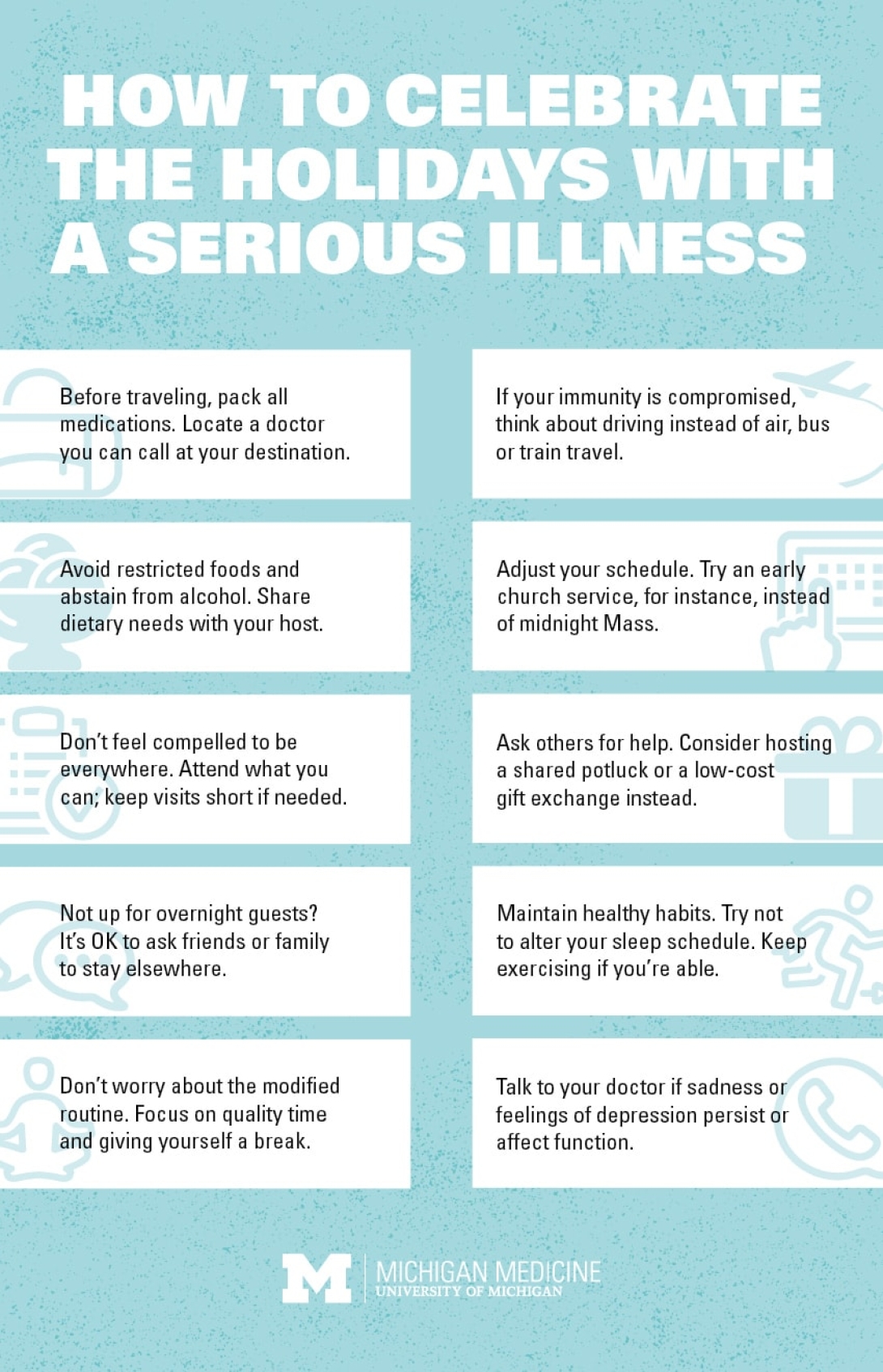People with serious disease or health problems may struggle to enjoy the winter season. A Michigan Medicine expert offers tips to accommodate their needs.
7:00 AM
Author |

With shopping lists to complete, houseguests to welcome and party invites to honor, the holidays can be stressful for anyone.
Those facing an illness, however, often find it much harder to carry out those tasks.
MORE FROM MICHIGAN: Sign up for our weekly newsletter
A condition might restrict what they can eat at the dinner table. Physical disability or reduced energy may hinder travel — or even attending a party across town. Medical bills can strain finances.
And the worry of relapse or a decline in health could keep a patient from enjoying a season meant for simple pleasures.
"For some people, it's too much," says Michelle Riba, M.D., a clinical professor of psychiatry at the University of Michigan and an associate director of the U-M Depression Center. "Some might feel overwhelmed by all the tasks and steps needed."
But even in the face of adversity, she notes, it's important to try to celebrate. The details might need to change.
SEE ALSO: 5 Strategies to Help Caregivers Practice Self-Care
Those conversations, if a patient is willing, can be shared in advance among family and friends to ensure preparations meet their needs. Ask your clinician for advice, too.
"It's important to discuss what's realistic in order to minimize the stress," Riba says. "You can still get meaning and joy out of the holidays — it might just be in a different way."
Riba shared tips she often discusses with patients:


Explore a variety of healthcare news & stories by visiting the Health Lab home page for more articles.

Department of Communication at Michigan Medicine
Want top health & research news weekly? Sign up for Health Lab’s newsletters today!





